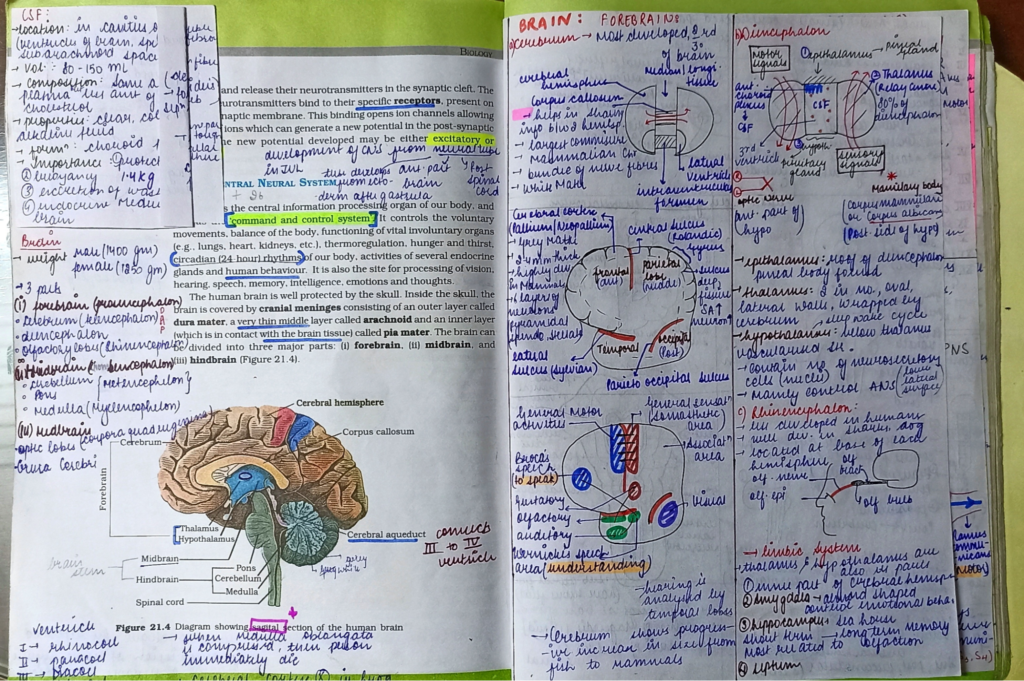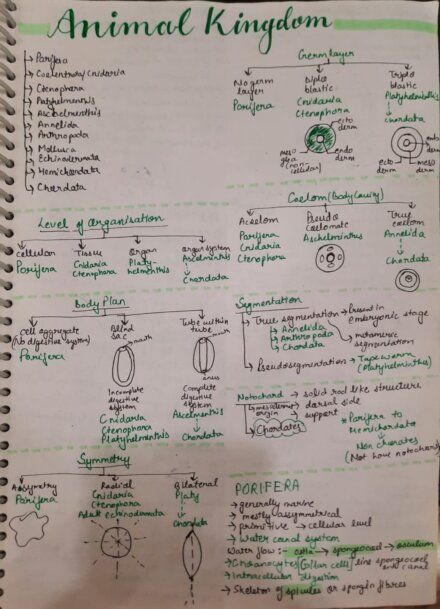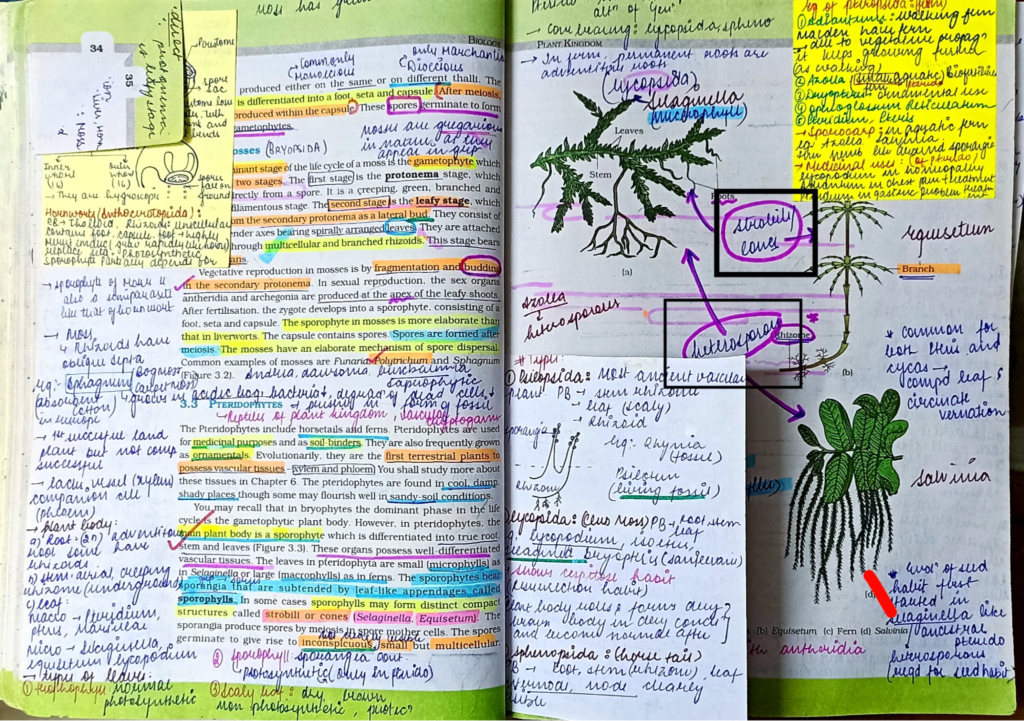How to Study Biology for NEET 2025: A Student Guide
Studying Biology for NEET 2025 can feel overwhelming. With so many chapters, diagrams, and facts to remember, it’s hard to know where to start NEET preparation or how to manage school and NEET study together. Many students struggle with forgetting concepts, managing time, or understanding how to focus on important topics.
In this blog, I’m going to share simple and practical tips to help you overcome these problems. These strategies will make biology easier to understand and remember. So you can study smarter and feel more confident in your preparation. Let’s get started!
How to study biology for NEET 2025
Biology is one of the most important subjects for NEET. It covers a major part of the syllabus and carries the highest weightage in the NEET exam. Thus, you should focus on biology as early as possible. To ace biology, you need a combination of smart strategies and consistent practice.
Understanding the NEET syllabus

Start by knowing the NEET 2025 syllabus and what to study. The NEET Biology syllabus is divided into two parts: class 11 and class 12.
| Class | Unit | Chapter | Important topics |
| Class 11 | Unit 1 | Living World, Biological Classification | Biological classification, diagrams of algae, protonema vs. leafy stage, phylum features (e.g., hermaphroditism). |
| Plant Kingdom | Algae diagrams, inner/outer structures (e.g., cellulose/pectose), pteridophyte examples, algae table. | ||
| Animal Kingdom | Features of phyla, diagrams (e.g., Petromyzon vs. Rohu), reproduction modes. | ||
| Unit 2 | Morphology of Flowering Plants | Mnemonics for families (e.g., Faba, Solana, Lila), inflorescence types, petunia memorization tips. | |
| Anatomy of Flowering Plants | Secondary growth diagram, cockroach anatomy. | ||
| Unit 3 | Cell Structure and Cell Division | Chromosome/chromatid questions, abundance of elements (biomolecules). | |
| Unit 4 | Plant Physiology | Glycolysis, Kreb’s cycle, plant hormones, nutrient requirements (e.g., meristematic tissues). | |
| Unit 5 | Human Physiology | Neural system focus, sagittal section, regular revision of challenging chapters. | |
| Class 12 | Unit 1 | Reproduction | Reproductive health memorization tips, spermatogenesis details, organism chromosome table. |
| Unit 2 | Genetics and Evolution | Codons, molecular genetics clarity (e.g., Punnett squares), dates of evolution. | |
| Unit 3 | Biology in Human Welfare | Microbe diagrams, labeling bacteriophage, mnemonic for food production tables. | |
| Unit 4 | Biotechnology | Genetic manipulation videos, straightforward concepts. | |
| Unit 5 | Ecology | Biome graphs (precipitation and temperature), organism-population relationships. |
One thing to consider here is that not all chapters carry the same weight in the NEET exam. Some topics are highly important, while others are moderately or less important.
For example, chapters like Cell Structure and Human Reproduction are considered the most important due to their high weightage and frequent appearance in NEET question papers.
On the other hand, topics like Respiration in Plants or Reproduction in Organisms fall under average importance and usually feature fewer direct questions.
Similarly, Molecular Basis of Inheritance is a critical topic with many conceptual questions often asked in the exam. On the other hand, chapters like Ecosystem and Transportation in Plants focus more on understanding and usually have fewer tricky questions.
📌 Related: NEET Deleted Syllabus 2025 – Biology
Organize your study plan

A well-organized study plan is essential for success in NEET 2025. Following a clear NEET preparation timetable helps you study Biology daily without feeling overwhelmed. Think of it like constructing a house. You need a solid foundation, followed by a blueprint and step-by-step approach to complete each part of the house.
Similarly, organizing your study plan helps you lay the groundwork for success. Ensures you to focus on the right topics, track your progress, and build your knowledge progressively. Sharing strategies about how to make an effective NEET preparation study plan.
- Prioritize chapters: Begin with the high-weightage topics and those you find most difficult.
- Create a checklist: List all chapters and track progress by marking them as “done,” “under review,” or “to start.”
- Link topics: Connect related topics, such as linking photosynthesis with plant respiration or Mendelian genetics with molecular biology, to improve understanding.
NCERT Biology is more than enough

You might be surprised, but I believe NCERT Biology is more than enough to score 360 in NEET Biology.
The secret is reading—over and over. Even after reading a chapter three times, you might feel like you missed something, and that’s okay. Every time you read, you’ll find something new. Repeated reading helps you remember the details more easily.
But reading doesn’t mean skimming through like a novel. Stay focused on understanding and remembering the key points. Highlight important information like dates, data, and definitions for easy revision. So when you revise, instead of re-reading the whole chapter, you can directly focus on the highlighted sections.
Also, during revision, try reading a chapter from the end to the beginning. Why? Because when we revise from start to end, we often lose focus by the time we reach the end. Revising in reverse helps you give maximum attention to the later sections, ensuring nothing gets overlooked.
If you get any questions wrong in tests, note them down. During revision, re-read the topic from NCERT. If it’s still not clear, refer to the best books for NEET preparation to gain better understanding and clarity. This will help you track and revise tough areas.
Pro tip: Don’t forget to read the summary at the end of each chapter—it’s full of important points.
Master diagrams and processes

When it comes to excelling in NEET Biology, mastering diagrams and processes is essential for scoring well. They help you understand concepts better and are often asked directly in the exam. For mastering this, follow the below pointers.
NCERT diagrams are your best friend
The diagrams in NCERT are key to your preparation. Study them carefully and understand every detail. Make sure you can label them correctly, as small mistakes can cost you marks.
Practice drawing and labeling regularly
Don’t just look at the diagrams—practice drawing them regularly. Start with important ones like:
- The human heart and brain.
- Plant anatomy (like leaf and root structure).
- Stages of cell division (mitosis and meiosis).
The more you practice, the better you’ll remember them.
| “I fear not the man who has practiced 10,000 kicks once, but I fear the man who has practiced one kick 10,000 times.” – Bruce Lee, a Hong Kong-American martial artist |
Learn processes step-by-step
Processes like photosynthesis, respiration, and reproduction might seem tough, but breaking them into small steps makes them easier to understand.
- For photosynthesis, learn the light and dark reactions separately.
- For respiration, study glycolysis, the Krebs cycle, and the electron transport chain one by one.
- For reproduction, focus on stages like fertilization and embryo development.
Use simple notes or flowcharts to remember these steps.

Use visual tools and technologies
Use flashcards, videos, or animations to understand diagrams and processes better. These tools make learning more interesting and easier to remember.
Check the summary tables
At the end of some NCERT chapters, there are summary tables. These are great for quick revision and cover important points from the chapter.
By practicing diagrams and understanding processes step by step, you’ll feel more confident and prepared for NEET. Keep practicing, and they’ll become second nature to you!
Pro tip: Learn tips from toppers for NEET preparation by watching their interviews to see how they prepare biology for NEET 2025!
Make your own notes

Many students think they can save time by borrowing notes from friends or seniors. While their notes might be good, they are customized to how they understand the subject, not you.
Imagine this: You borrow your friend’s biology notes. The notes are filled with highlighted keywords, arrows pointing to random text, and abbreviations you don’t understand. You sit down to study and spend more time trying to decode what your friend meant than actually learning the content. Sounds familiar?
This is why it’s so important to create your own notes. When you write notes in your own words, it forces you to process the information and understand it better.
- Write key points in a way that makes sense to you.
- Use flowcharts or diagrams for complex processes.
- Add mnemonics for terms that are hard to remember.
Making your own notes might take time, but it will save you hours of confusion later and make revision much easier.
Join a reputed NEET coaching institute

When preparing for Biology in NEET 2025, self-study is crucial, but coaching institutes can provide valuable support. Institutes like Chaitanya’s Academy offer structured study materials focused on biology, experienced teachers to clear difficult concepts, and doubt-solving sessions that help when you’re stuck.
They also provide mock tests and practice papers specifically for Biology, helping you get familiar with the types of questions that might appear in the exam. Chaitanya’s Academy offers both classroom and online coaching, allowing you to choose the best method for your study routine.
With regular interaction and guidance, coaching helps you stay motivated and ensures you don’t miss important topics. While self-study is key, coaching can help you focus your efforts and improve your understanding of biology for NEET.
Join Chaitanya’s Academy today and get up to 100% scholarship for NEET coaching!
Practice previous year papers and mock tests

One of the best ways to prepare for biology for NEET is by practicing past papers and taking mock tests regularly. It helps you understand the pattern of the exam, the type of questions asked, and the areas you need to focus on.
Tips for practicing mock tests
- Simulate real exam conditions—set a timer and avoid distractions.
- Analyze your performance after every test.
- Note down topics where you made mistakes or took too much time.
- Focus on high-weightage topics when reviewing weak areas.
The more you practice, the more confident and prepared you’ll feel for the actual exam. Remember, consistent practice is the key to success!
Revise regularly

Listening to a song once doesn’t mean you remember it. You have to listen to it over and over if you want to sing along with the singer. The same goes for NEET! Studying a topic once isn’t enough to truly grasp it. Regular revision is key to remembering and understanding it fully.
How to revise effectively
- Weekly revision: Set aside time each week to go over previously studied topics. This consistent practice will help cement the information in your memory.
- Create a revision schedule: Break down the entire syllabus into smaller sections and plan to revisit each one multiple times before the exam. The more times you review, the stronger your memory will be.
- Use flashcards or quick notes: For last-minute revision, flashcards are perfect for quick recall. Condense the important information into short, easy-to-understand notes that you can go over in a flash.
Remember, if you revise each chapter thoroughly—whether it’s Biology, Physics, or Chemistry—no one, absolutely no one, can stop you from cracking NEET on your first attempt.
Stay consistent and avoid overloading

Imagine you plan to study “Ecology” in one sitting. After a couple of hours, you feel overwhelmed and lose focus. Instead, if you break it into smaller sessions—let’s say, studying food chains one day and biogeochemical cycles the next—you’ll understand the topic better without feeling overloaded.
You get it! But,
How to stay consistent
- Daily study routine: Dedicate at least 1-2 hours to biology every day. Even short, focused sessions add up over time.
- Divide and conquer: Break down your syllabus into smaller, manageable portions. For instance, study one topic or sub-topic a day instead of trying to tackle an entire chapter.
- Take regular breaks: Use techniques like the Pomodoro method—study for 25 minutes and take a 5-minute break. Short breaks refresh your mind and prevent burnout.
Pro tip: Track your progress with a planner or checklist. This keeps you accountable and motivates you to stay consistent. And most importantly, while taking a 5-minute break, make sure it doesn’t turn into 20 minutes! Otherwise, you’ll find yourself regretting it by the end of the day when you haven’t covered as much as you planned. Stick to the schedule to stay productive!
Stay healthy and positive

Taking care of your mental and physical health is just as important as studying for NEET. If you’re not feeling well or positive, your productivity will drop.
Simple tips to stay healthy
- Eat well: Have balanced meals with fruits, vegetables, and protein. Avoid junk food, especially during study hours. It might be tempting, but it won’t keep you focused.
- Stay hydrated: Keep a water bottle nearby and drink throughout the day. Dehydration can make you feel sluggish and tired.
- Exercise: Even a 10-minute walk or quick stretches help. It releases stress and refreshes your mind, helping you focus better when you get back to studying.
- Take regular breaks: Don’t study for hours without a break. Every hour, take a 5-minute break to stretch, walk around, or just close your eyes for a moment. This keeps your brain sharp.
- Believe in yourself: Remind yourself that you’re doing your best. Don’t get discouraged if you feel stuck on a topic.
- Set small goals: Break your study sessions into smaller targets. For example, finish a chapter today, or master a particular topic. When you complete it, give yourself a quick reward.
Gear Up! Master Biology for NEET and Aim for a Perfect 360/360
Scoring well in NEET Biology can feel tough, but with the right approach, it’s totally possible. Biology is a big part of the NEET exam, and to do well, you need a strong understanding, regular practice, and expert help.
At Chaitanya’s Academy, one of the best NEET institutes in India, we make Biology easier to learn. Our experienced teachers explain everything clearly and help you understand each topic. We provide study materials, solve your doubts, and conduct regular mock tests to help you stay on track.
Don’t let Biology be a challenge—join Chaitanya’s Academy today and make your NEET preparation simpler and more effective. All the best! 👍
Frequently Asked Questions
How to study Biology for NEET?
Answer:Focus on NCERT textbooks, as they form the core of the syllabus. Understand concepts thoroughly, make notes, and practice diagrams regularly. Supplement your learning with coaching materials and solve previous year papers.
How to revise Biology for NEET effectively?
Answer:Revise regularly by allocating time every week for previous chapters. Use flashcards or quick notes for last-minute revisions, and focus on important topics that frequently appear in the exam.
Is Biology compulsory for NEET?
Answer:Yes, Biology is a mandatory subject for NEET as it forms a significant portion of the exam. A strong grasp of Biology is essential for medical aspirants aiming to qualify.
What’s the best way to learn and remember Biology for NEET?
Answer:Break down topics into smaller sections, and use mnemonics and flowcharts to remember concepts. Practice writing answers and solving MCQs to reinforce memory and improve understanding.
How should I approach Botany for NEET?
Answer:Study Botany with the same emphasis as Zoology. Focus on plant physiology, morphology, and reproduction. Practice diagrams and ensure a clear understanding of processes like photosynthesis and respiration.




